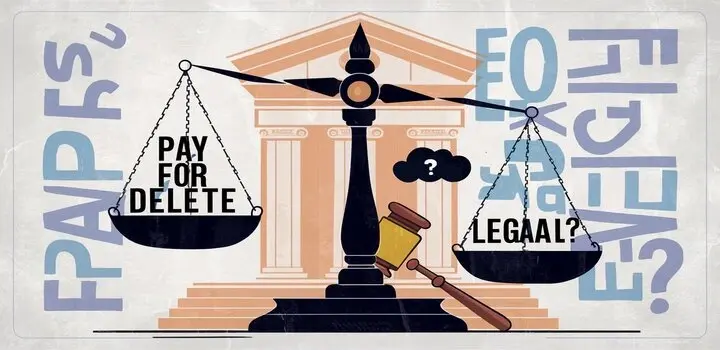-
Posted on: 24 Jul 2024

-
Losing a husband is one of life's most profound and painful experiences. Beyond the immense grief, there's a practical reality that demands attention. This guide offers a roadmap of the essential steps a wife needs to take after her husband's death, covering the legal, financial, and emotional aspects of navigating this challenging time.
Immediate Steps to Take After the Loss
In the immediate aftermath, while grappling with grief, certain actions are crucial to ensure a smooth transition.
1. Obtain the Death Certificate
The death certificate is a vital document needed for almost everything that follows. Order multiple certified copies (typically 10-15) as you'll need them for life insurance claims, Social Security benefits, transferring assets, and more. The funeral home typically handles this process, but ensure you understand how many copies are being ordered and how to obtain additional copies later. Keep these certificates in a safe and easily accessible location.
2. Notify Key People and Institutions
Inform close family and friends, as well as important institutions. This includes:
- Family and Friends: Share the news with those closest to you and your husband. Consider delegating this task to a trusted friend or family member to ease your burden.
- Employer: Notify your husband's employer, both to handle final paychecks and benefits, and to understand any life insurance or retirement plans offered through work.
- Legal and Financial Professionals: Consult with a lawyer and financial advisor as soon as you feel ready. They can guide you through the legal and financial complexities ahead.
- Insurance Companies: Contact life insurance companies, health insurance providers, and any other insurance providers your husband had policies with.
- Social Security Administration: Report the death to the Social Security Administration to stop benefit payments and inquire about survivor benefits.
- Banks and Financial Institutions: Notify banks, credit card companies, and other financial institutions where your husband had accounts.
- Utilities and Service Providers: Update billing information for utilities, cable, internet, and other service providers.
3. Arrange Funeral or Memorial Services
Arranging the funeral or memorial service is a deeply personal task. Discuss your husband's wishes (if known) and consider your own comfort level. Don't feel pressured to make decisions quickly. Explore different options, compare prices, and seek support from friends and family. Remember, it's okay to postpone the service if you need more time to grieve and plan.
4. Secure the Home and Valuables
Ensure your home and valuables are secure. This may involve:
- Changing locks if necessary.
- Securing valuable documents and possessions.
- Forwarding mail to prevent identity theft.
Navigating the Legal and Financial Landscape
The legal and financial aspects of settling an estate can be complex. Seeking professional guidance is highly recommended.
1. Understanding the Will and Probate
If your husband had a will, it should be located and read. The will names the executor (or personal representative), who is responsible for managing the estate. If there is no will, state laws dictate who will serve as the administrator. Probate is the legal process of validating the will (if one exists) and distributing the assets of the deceased. This process can be lengthy and require court appearances. A probate attorney can guide you through the process and protect your rights.
2. Assessing Assets and Debts
A crucial step is to create a comprehensive inventory of all assets and debts. This includes:
- Assets: Real estate, bank accounts, investments, retirement accounts, life insurance policies, personal property (vehicles, jewelry, furniture, etc.).
- Debts: Mortgages, credit card debt, loans, medical bills, taxes.
Gathering documentation, such as account statements, loan documents, and insurance policies, is essential. It's important to understand how assets are titled (e.g., individually, jointly, in trust) as this affects how they will be distributed.
3. Dealing with Jointly Held Assets
Assets held jointly with right of survivorship typically pass directly to the surviving spouse, bypassing probate. This simplifies the transfer process. However, documentation and notification to the relevant institutions are still required.
4. Claiming Life Insurance Benefits
Contact the life insurance company (or companies) and file claims for any policies where you are the beneficiary. Provide the death certificate and any other required documentation. Understand the payout options (lump sum, annuity, etc.) and consider the tax implications before making a decision. Consult a financial advisor for guidance.
5. Applying for Social Security Survivor Benefits
The Social Security Administration (SSA) offers survivor benefits to eligible widows and dependent children. Contact the SSA to report your husband's death and apply for benefits. Eligibility requirements vary, so it's essential to understand the rules and regulations.
6. Managing Debt and Taxes
Debts generally must be paid from the estate's assets before any inheritances can be distributed. Creditors have a certain period of time to file claims against the estate. Taxes, including estate taxes (if applicable) and income taxes, must also be addressed. Consult with a tax professional to ensure compliance.
7. Updating Estate Planning Documents
After your husband's death, it's crucial to review and update your own estate planning documents, including your will, power of attorney, and healthcare directives. Your husband may have been named as your executor, beneficiary, or agent in these documents, and you'll need to update them accordingly. Consider your own wishes and circumstances and consult with an estate planning attorney to create a plan that reflects your current needs.
Taking Care of Yourself: Emotional Well-being
Amidst the legal and financial tasks, it's vital to prioritize your emotional well-being. Grief is a complex and personal experience, and there's no right or wrong way to feel. Allow yourself time to grieve, seek support, and practice self-care.
1. Acknowledge and Allow Your Grief
Don't suppress your emotions. Allow yourself to feel sadness, anger, confusion, or any other emotions that arise. Grief is a natural response to loss, and it's important to acknowledge and process your feelings.
2. Seek Support from Others
Lean on family, friends, or support groups. Talking about your feelings can be incredibly helpful. Don't be afraid to ask for help, whether it's with practical tasks or emotional support. Consider joining a widow support group where you can connect with others who understand what you're going through.
3. Consider Professional Counseling
A therapist or counselor can provide a safe and supportive space to process your grief and develop coping mechanisms. Grief counseling can be particularly helpful if you're experiencing prolonged or complicated grief.
4. Practice Self-Care
Take care of your physical and emotional health. This includes:
- Eating nutritious meals.
- Getting enough sleep.
- Exercising regularly.
- Engaging in activities you enjoy.
- Practicing relaxation techniques, such as meditation or deep breathing.
5. Avoid Making Major Decisions Immediately
Avoid making significant life changes (e.g., selling your home, quitting your job) in the immediate aftermath of your husband's death. Give yourself time to grieve and adjust before making major decisions.
6. Be Patient with Yourself
Grief is a process, not an event. There will be good days and bad days. Be patient with yourself and allow yourself time to heal. Remember that healing is possible, and you will eventually find a new normal.
Specific Financial Considerations
Understanding Retirement Accounts (401k, IRA)
The handling of retirement accounts, such as 401(k)s and IRAs, depends on how they were structured and the beneficiary designations. As a surviving spouse, you typically have several options:
- Roll over the assets into your own IRA: This allows you to continue the tax-deferred growth.
- Take a lump-sum distribution: This option may trigger significant taxes.
- Inherit the account as a beneficiary IRA: You'll be required to take distributions over time, but it avoids immediate taxation.
Consult with a financial advisor to determine the best option based on your individual circumstances and tax situation.
Mortgage and Housing
Review the mortgage terms and determine if you can afford to keep the home. Consider the following:
- Mortgage payments: Can you comfortably afford the monthly payments?
- Home maintenance and repairs: Can you handle the costs of maintaining the home?
- Property taxes and insurance: Are you able to cover these expenses?
If you're unable to afford the home, explore options such as refinancing, downsizing, or selling. Talk to a financial advisor or real estate professional for guidance.
Credit Card Debt
Credit card debt in your husband's name is typically the responsibility of the estate. However, if you were a joint account holder, you may be responsible for the debt. Contact the credit card companies to understand your obligations and explore options for managing the debt.
Working with a Financial Advisor
A financial advisor can provide valuable assistance in managing your finances after your husband's death. They can help you:
- Create a budget.
- Develop a financial plan.
- Manage investments.
- Plan for retirement.
- Make informed financial decisions.
Moving Forward: Building a New Future
Eventually, you will begin to rebuild your life and create a new future. This process takes time and effort, but it is possible to find joy and fulfillment again.
Finding Meaning and Purpose
Explore new hobbies, interests, or volunteer opportunities. Engage in activities that bring you joy and help you connect with others. Finding a new sense of purpose can be incredibly healing.
Building a New Support System
Cultivate new friendships and relationships. Join clubs, organizations, or groups that align with your interests. Expanding your social circle can provide valuable support and companionship.
Dating Again (When You're Ready)
Dating again is a personal decision, and there is no right or wrong time to start. When you feel ready, explore dating options and be open to meeting new people. Remember to prioritize your own well-being and happiness.











